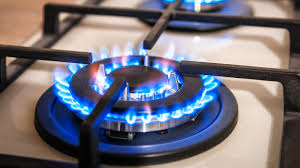Climate advocates in the US has been looking to ban gas stoves to help make the case for phasing out fossil fuels. Gas stoves release carbon monoxide and nitrogen dioxide which can increase the risk of respiratory damage. This has sparked disagreements in Washington over how to deal with the health risks which led a federal safety agency to look into.
A commissioner for Consumer Product Safety Commission told Bloomberg that a gas stove ban was on the table. This set a firestorm in Washington because some feel federal government has no business telling families how to cook.
The gas industry met faced opposition campaign by the gas industry and their allies in state legislatures. At least 20 have enacted laws that prohibit local governments from restricting fossil fuels in buildings.
Burning gas releases carbon monoxide, nitrogen dioxide and formaldehyde, which increase the risk of respiratory damage. A recent study found secondhand smoke is a risk for childhood as cooking on a gas stove may affect asthma.
The study, published in the International Journal of Environmental Research and Public Health, attributed 12.7% of childhood asthma cases in the US to air pollutants from gas stoves. The issue that it’s bad for the climate, than it must be bad for your health led to research a few years ago. The study raised awareness and possible opened the eyes policymakers to do something.
It has recently clarified the federal safety agency is not looking to ban gas stoves but is not looking to ban gas stoves but is considering other ways to reduce the hazards.
There are states and cities which don’t require gas stoves to be vented outdoors, which is different than appliances like furnaces and water heaters. Exhaust hoods and fans aren’t guaranteed to clean the air, and people might not always use them.
Some feel federal agencies should step up oversight since the Environmental Protection Agency doesn’t regulate indoor air quality, however it could issue nonbinding guidance that helps influence state and local officials who update building codes.




